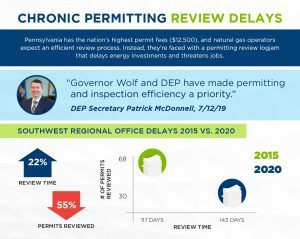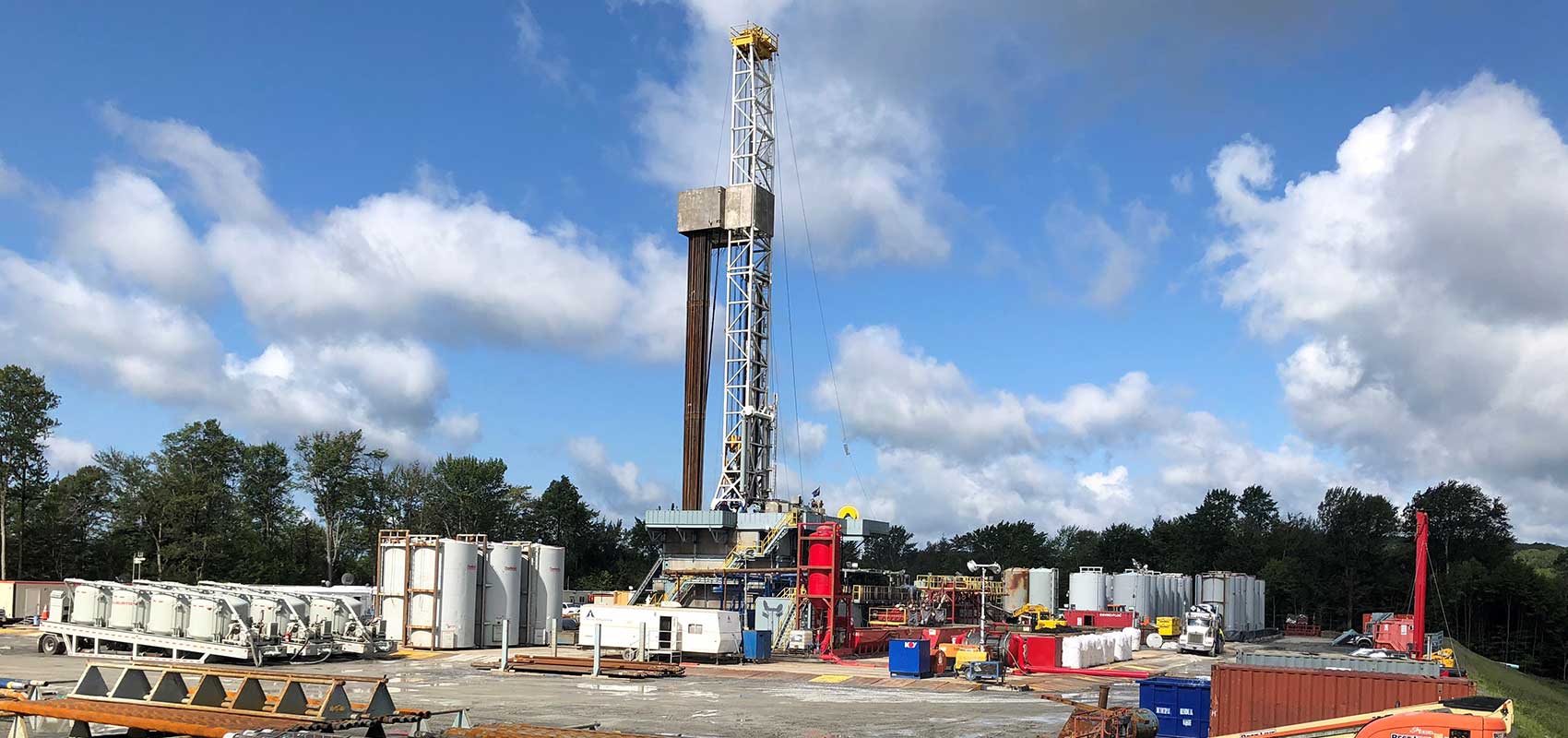Chronic permit review delays within the Pennsylvania Department of Environmental Protection jeopardize job-creating investments and threaten long-term growth opportunities, a Marcellus Shale Coalition analysis concludes.
Despite Secretary McDonnell pledging to make permitting more efficient following a 2017 Associated Press story, review times for the critically important Erosion and Sediment Control General Permit (ESCGP) have worsened, even as the workload itself has lightened.
“We’ve seen an erosion on how DEP is processing these general permits,” MSC’s Callahan said in an interview with the Pittsburgh Business Times. “This permit is essential to everything we do. Every facet of our operation is impacted by this permit.”
DEP’s Southwest regional office, for example, took 117 days to review 68 ESCGPs in 2015. By 2020, it took the agency 143 days to review just 30 permits, the state data indicates. This represents a 22% increase in review time amid a 55% decline in permits reviewed.
Consistent review timelines are important for operators to budget appropriately and realize operational efficiencies.
“We place a high premium on efforts to keep our costs low,” Callahan continued. “We need predictability, so we can plan for development and to go back to it, to respond to those price signals.”
These chronic permit review delays continue, despite a 150% increase in drilling permit application fees – to $12,500, the nation’s highest.

Reviews are not only delayed, but inconsistent across DEP regional offices, as the Northcentral office processed 4 times the number of permits as the Southwest in approximately 60 fewer days, on average.
Predictable, efficient permit review should be a priority for state government, as it strengthens Pennsylvania’s overall business climate.
Lawmakers in the House and Senate have introduced legislation to address the permit logjam and provide needed certainty. Pa. House Bill 604 (Rep. Jonathan Fritz, R-Honesdale), for one, would mandate DEP review permits within 45 days of submission. If DEP fails to approve or deny a permit within that allotted review time, the permit would be considered approved so long a professional engineer has signed off and DEP does not challenge the permit.
This legislation would bring Pennsylvania’s permitting framework up to par with other states across the country, such as California and Vermont, according to Representative Fritz.
“The goal is to make Pennsylvania more attractive to business, more competitive with neighboring states,” Representative Fritz said of the bill. “States that, frankly, are ‘eating our lunch’ when it comes to attracting business and economic development.”
“Businesses need predictability and stability. Investors demand certainty and a level playing field. That is the target of my legislation – let’s put Pennsylvania back on the map,” Rep. Fritz concluded.
Senator Kristin Phillips-Hill (R-York County) has also introduced legislation, Senate Bill 28, requiring state agencies to post permit status updates online and create a tracking system for applicants.
“We want to bring our statutes up to date and foster a more business-friendly climate for all our residents. Now more than ever, it is vital to protect the economy of our state,” Senator Phillips-Hill said.
Click HERE to view this post as a PDF.





